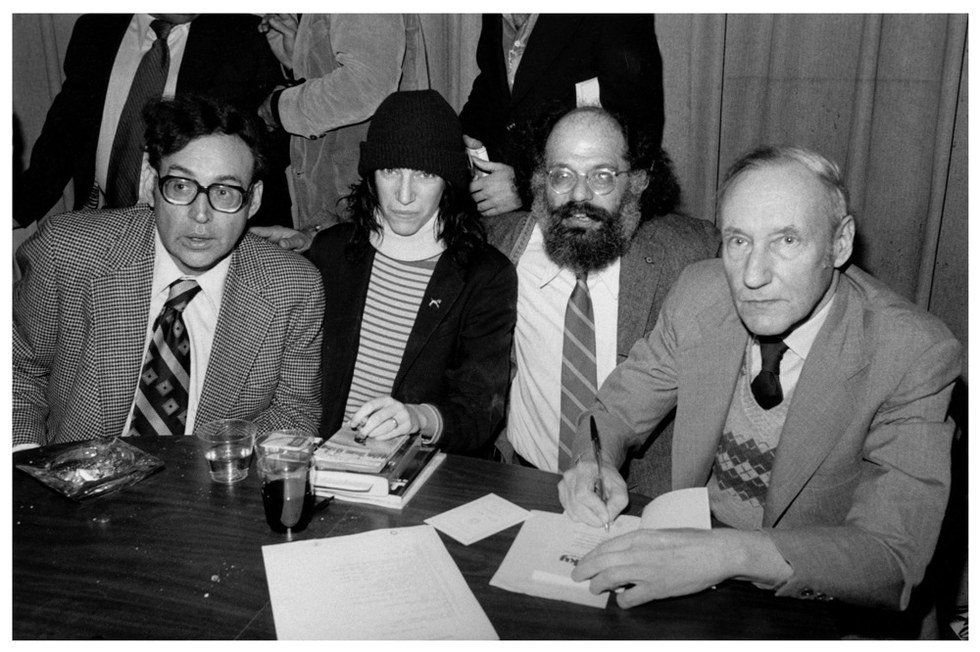Those who know me well will attest to my obsession with a niche group of writers and artists, active mostly during the 1950s, known as the Beat Generation. What I find most fascinating about this group of extraordinary writers is not just their work, but the vision behind it. This vision came not from one of the creators of Beat literature, but from a friend and associate named Lucien Carr. Carr was a core member of the original Beat authors who met at Columbia University in New York, alongside famous names such as Allen Ginsberg, Jack Kerouac, and William S. Burroughs. Though he never directly contributed to the literature of the movement, he pushed the genius around him into fertility with his New Vision. At Columbia, he studied the practices and forms of Parisian Bohemianism and Emersonian transcendentalism and created the following series of affirmations that fueled the Beat revolution:
1. Naked self-expression is the seed of creation.
2.The artist’s consciousness is expanded by the derangement of the senses.
3. Art eludes conventional morality.
These are all taken with the transcendentalist idea that humans are good by nature, which opens the artist to new experiences without the fear of serious, permanent harm to themselves. Together, these statements form Lucien Carr’s New Vision.
One of the best pieces of advice a budding writer or artist can heed is to “create everything." I interpret the first affirmation of the New Vision, “naked self-expression is the see of creation,” to mean the same thing. Naked self-expression is the rawest form of art. Say, for example, you wish to cook a hamburger for dinner. First, you need the raw ground beef. This is the naked self-expression of the meat, unadulterated and unaltered. From there, the cook, the artist, is free to season and refine the raw material to improve it. In the end, the burger that the cook seasoned will taste better than a lump of ground beef thrown onto the griddle untouched. However, the burger would be nothing without the raw base. Through naked self-expression, we introduce a large body of raw material that we can refine into something greater.
I cannot publicly condone the use of drugs as writing assistants. I can, however, say that many artists throughout the course of history have used substances as a lubricant for their creative pathways. Personally, I find that a glass or two of wine and some fast-paced jazz will get my writing flowing. The Beats took a lot of various substances. William Burroughs spent a significant portion of his life addicted to heroin. Jack Kerouac was a severe alcoholic. Allen Ginsberg was known to experiment with psychedelics such as LSD or DMT. All of them were frequently strung out on Benzedrine, an over-the-counter amphetamine that has since been removed from the market. In deranging their senses, the Beats sought to explore and create on a different plane of perception than the stuffy, academic world that suffocated the early members of the movement at Columbia.
In saying that “art eludes conventional morality,” I am not saying that you must commit atrocities for your art, or that you can justify an atrocity by calling it art. The final statement of the New Vision is a liberation from censorship, from commonality, and from the judgement of the general public. It invites the artist to explore the taboo. For Allen Ginsberg in particular, this opened the path to discussing the problems he faced as a homosexual man in mid-century America and to fighting the censorship of his most well-known poem, Howl. For me, it encourages me to confront the issues that arise as a bisexual man who was raised in the Catholic school system. Morality is relative to what was instilled in us as children. Homosexuality cannot be practiced under the law of the Church.
With the New Vision in mind, the artist can be set free from tradition and expand their mind and work to create something new and unique. It opens the artist to experimentation and failure. I struggle with both of these as I was raised to believe that failure is unacceptable, whether with grades or social situations or sports. It wasn’t until around when I first started writing consistently during my senior year of high school that I began to work on this, to view failure not as a defeat but as a chance to retry and experiment and learn. Lucien Carr’s New Vision is an essential part of my development as a writer.




















